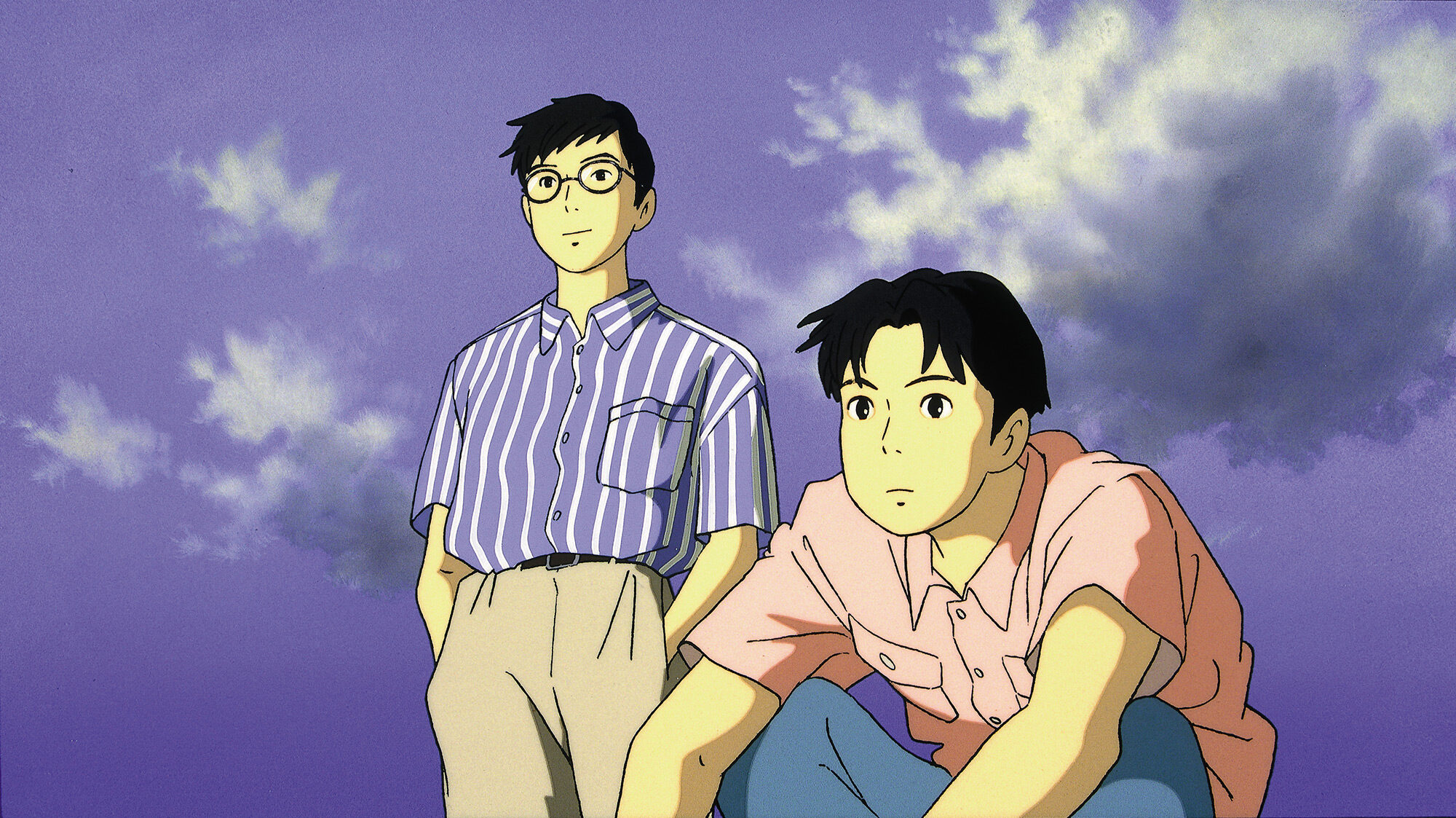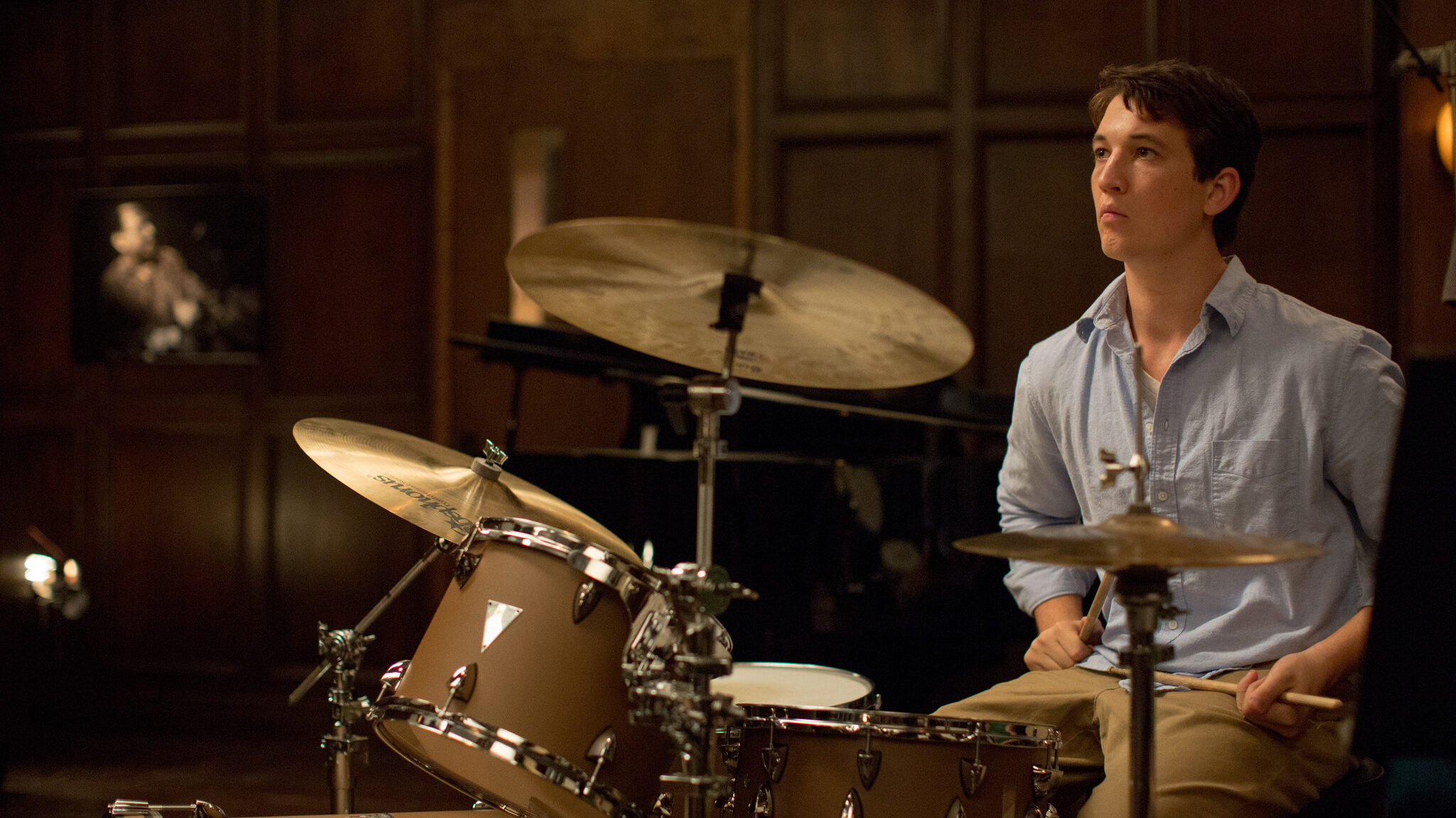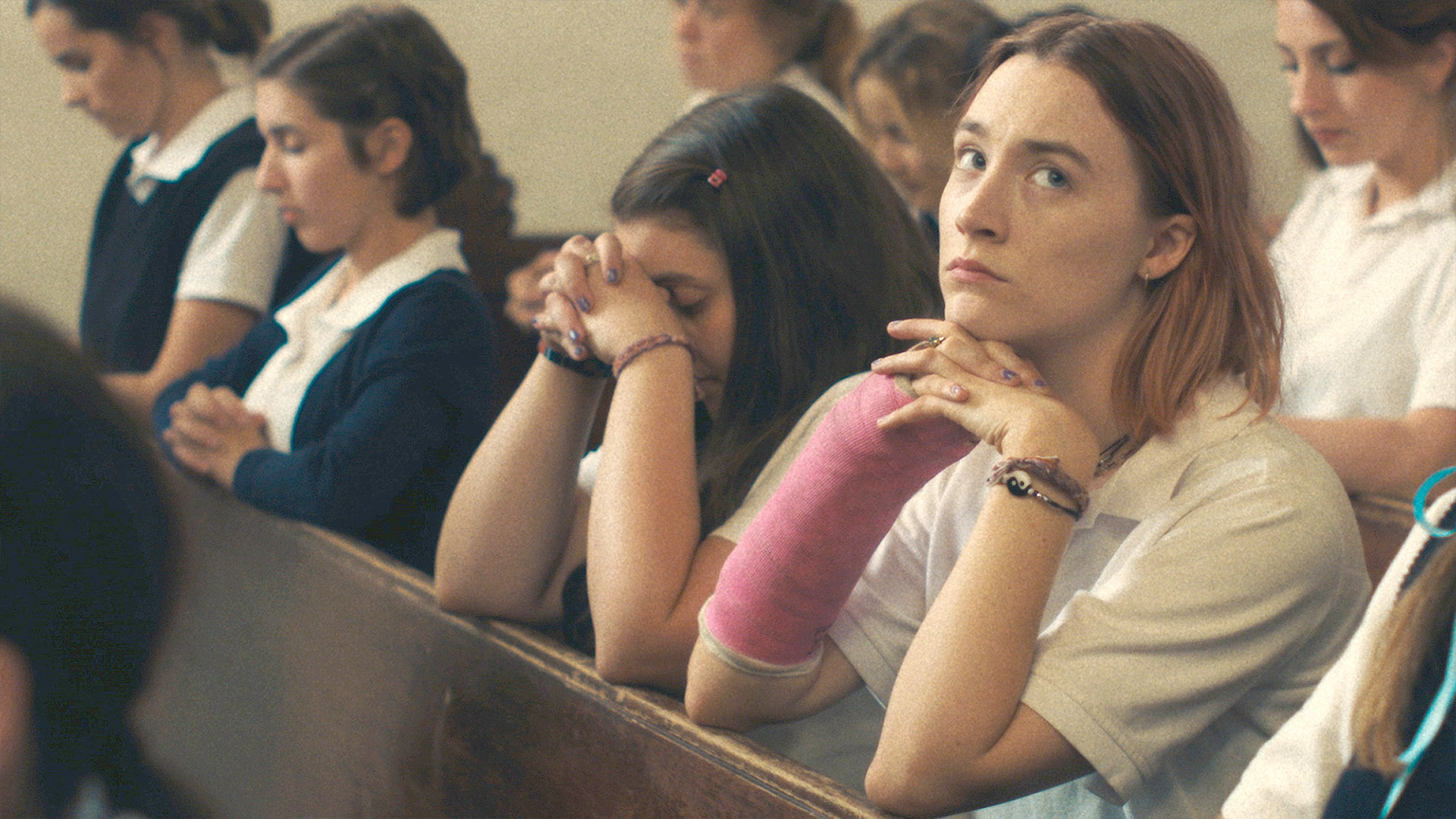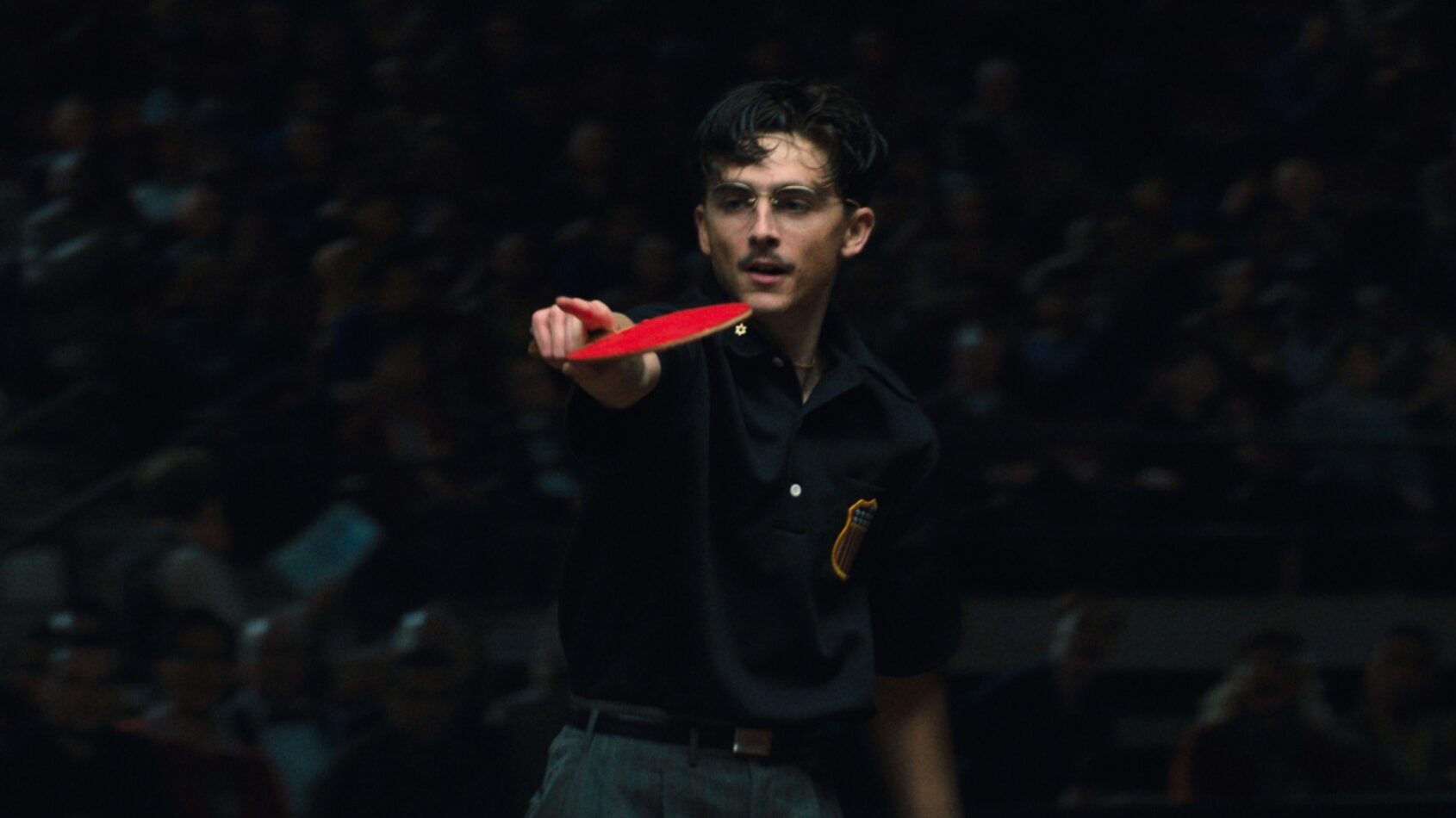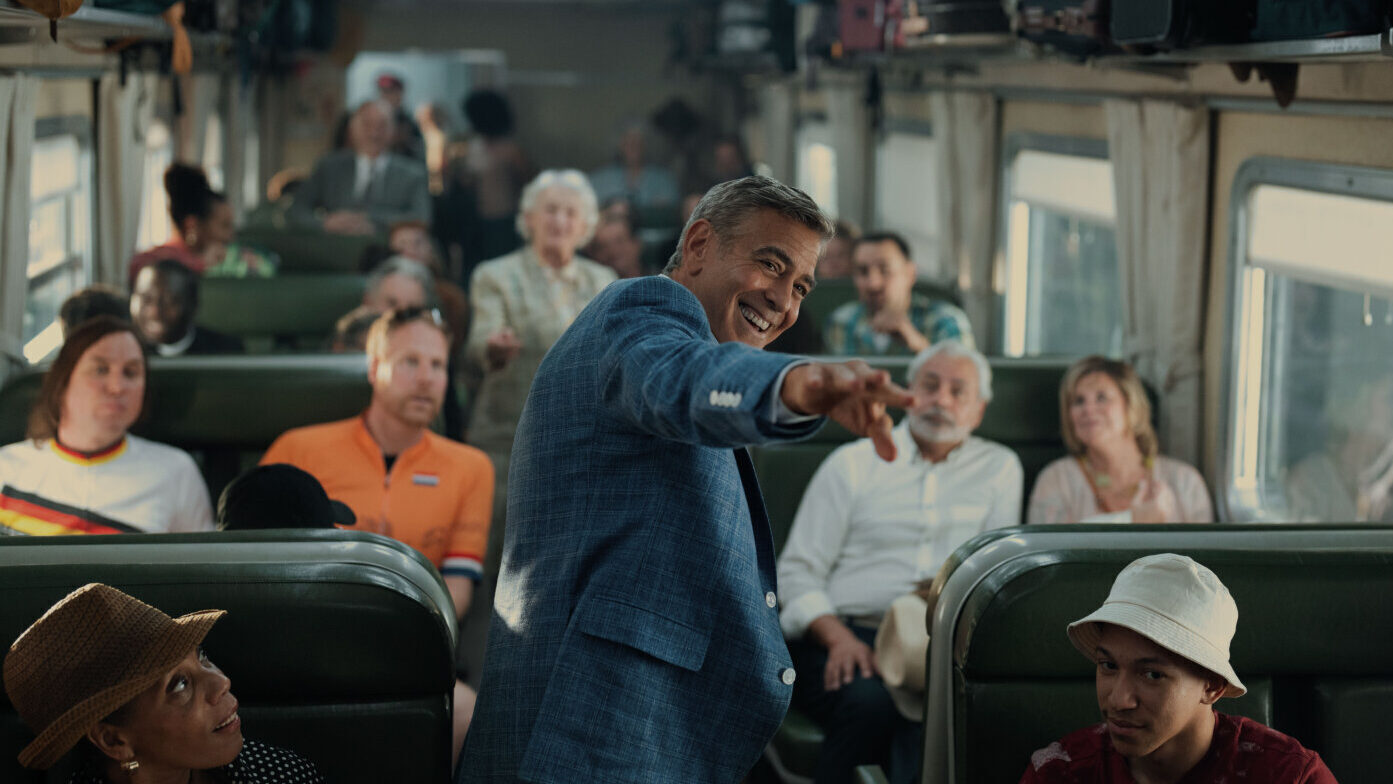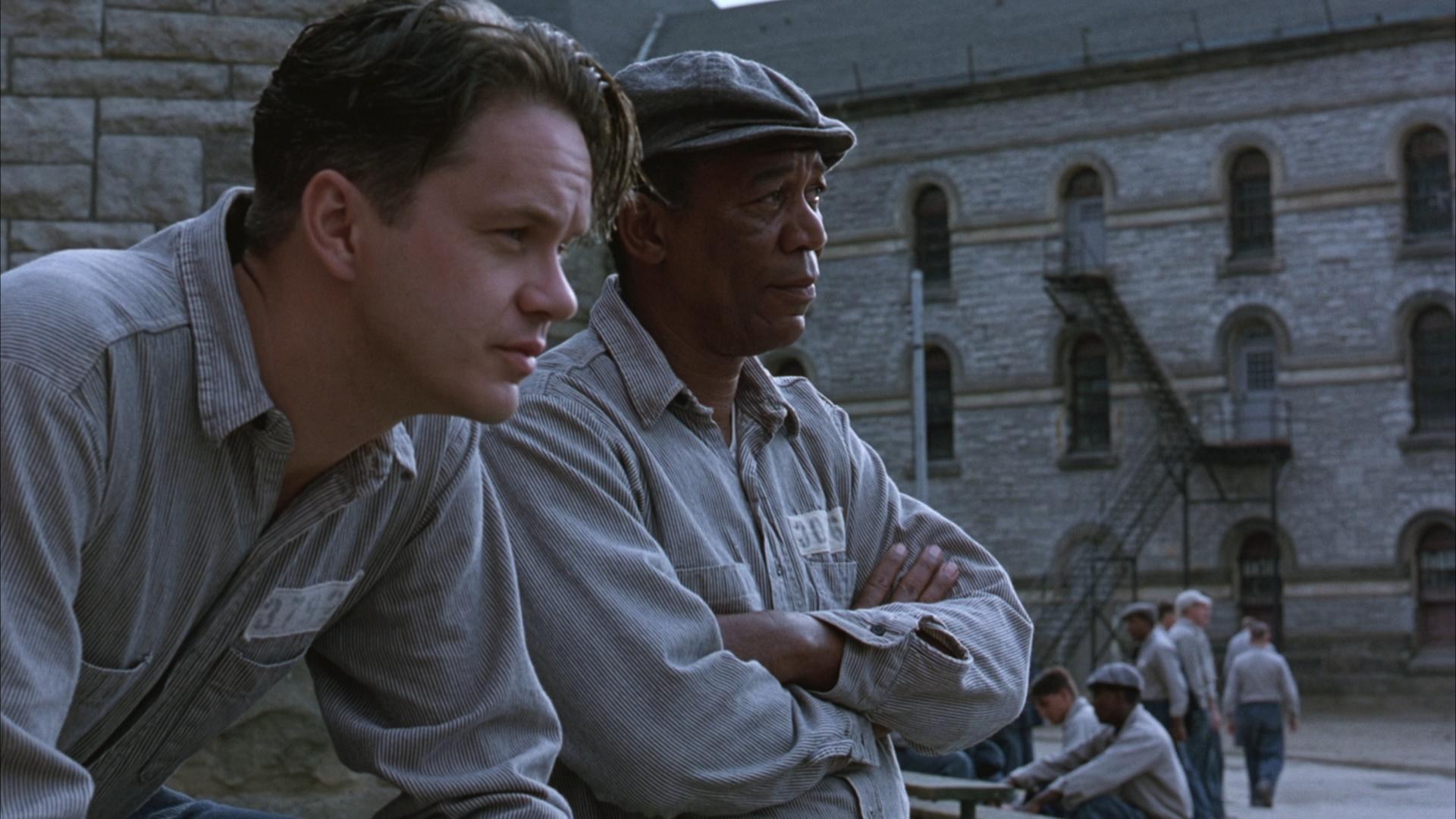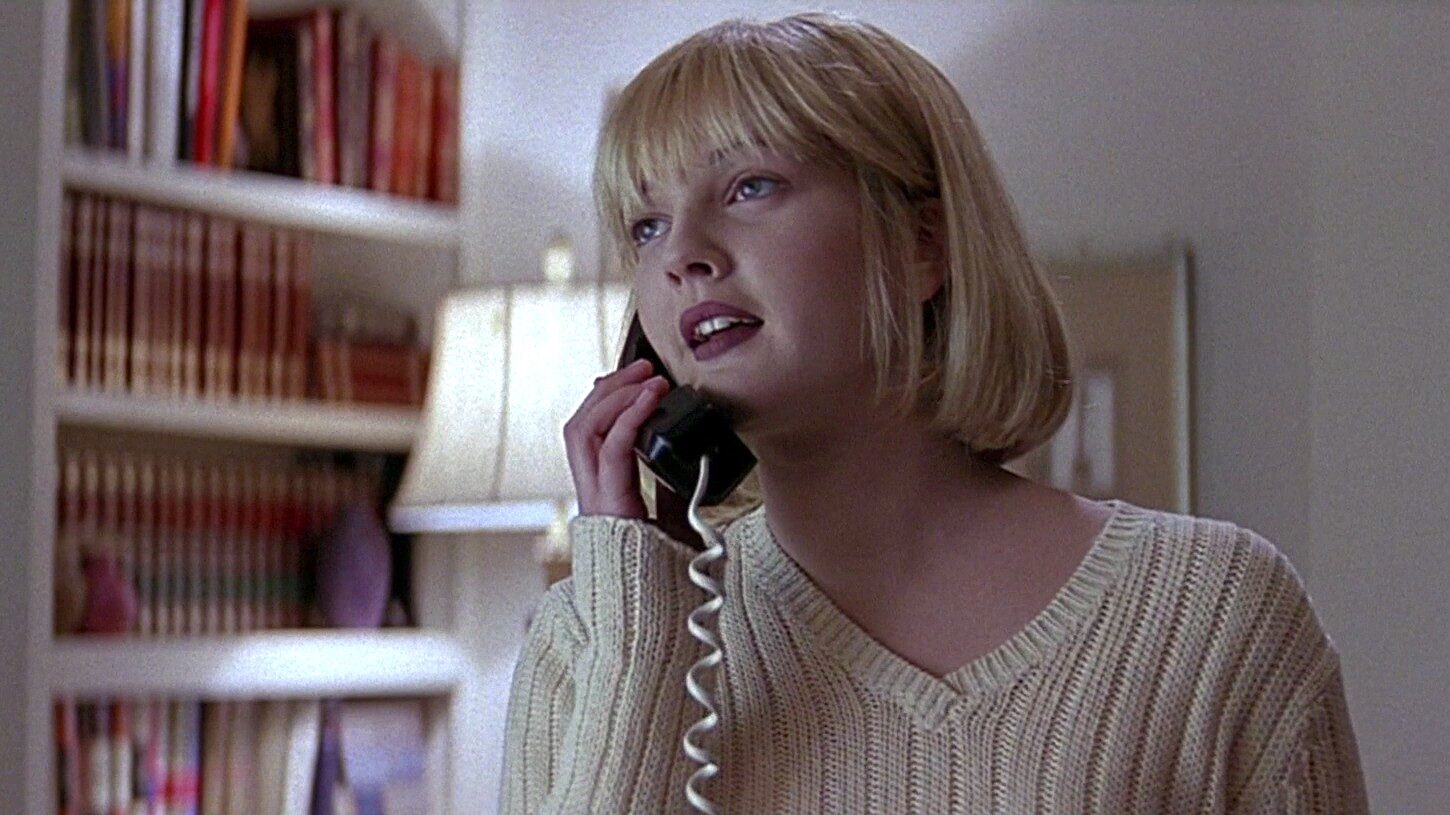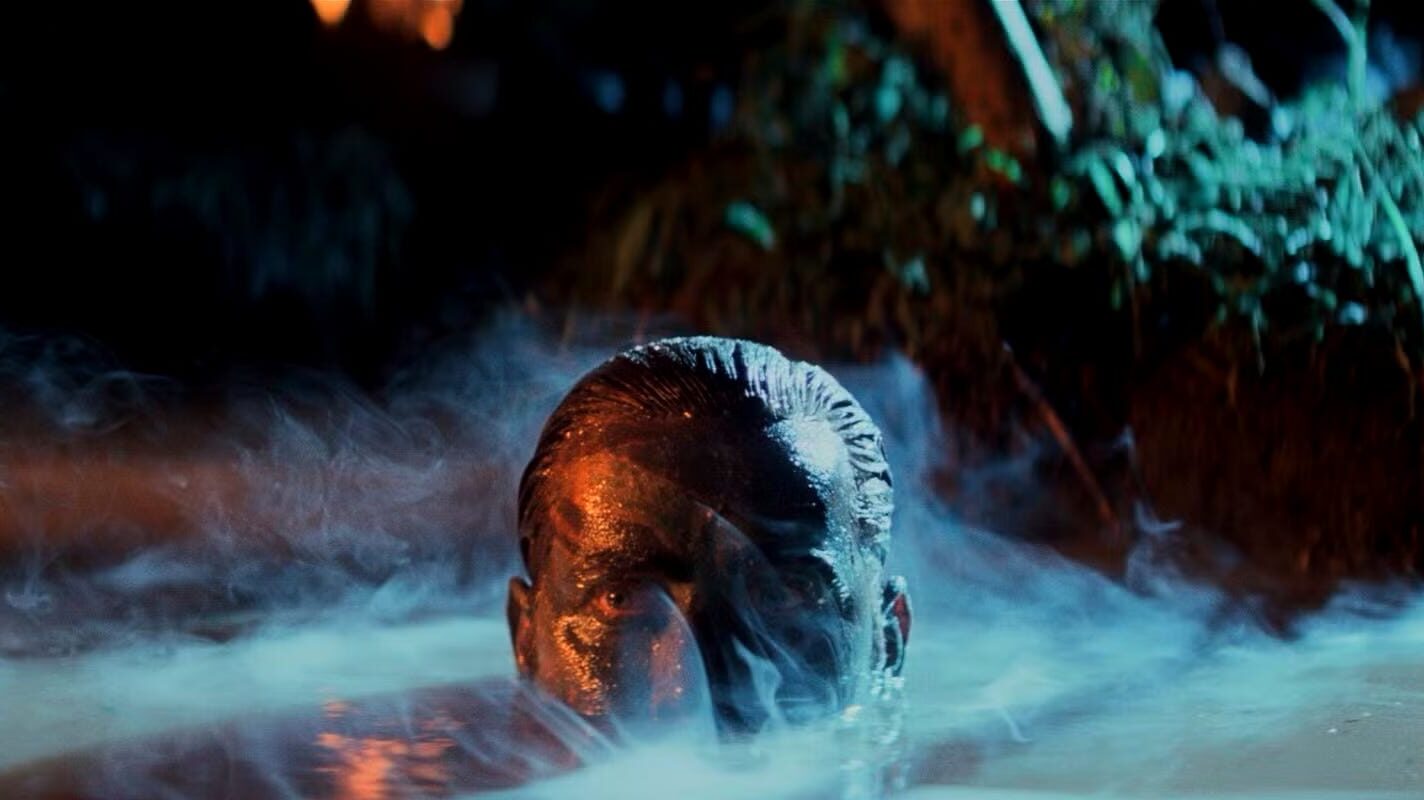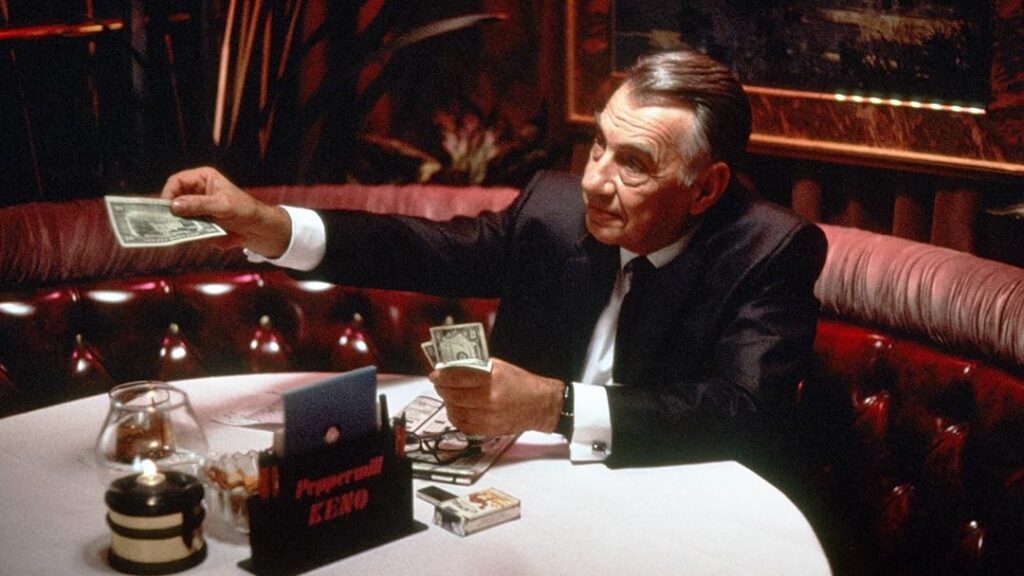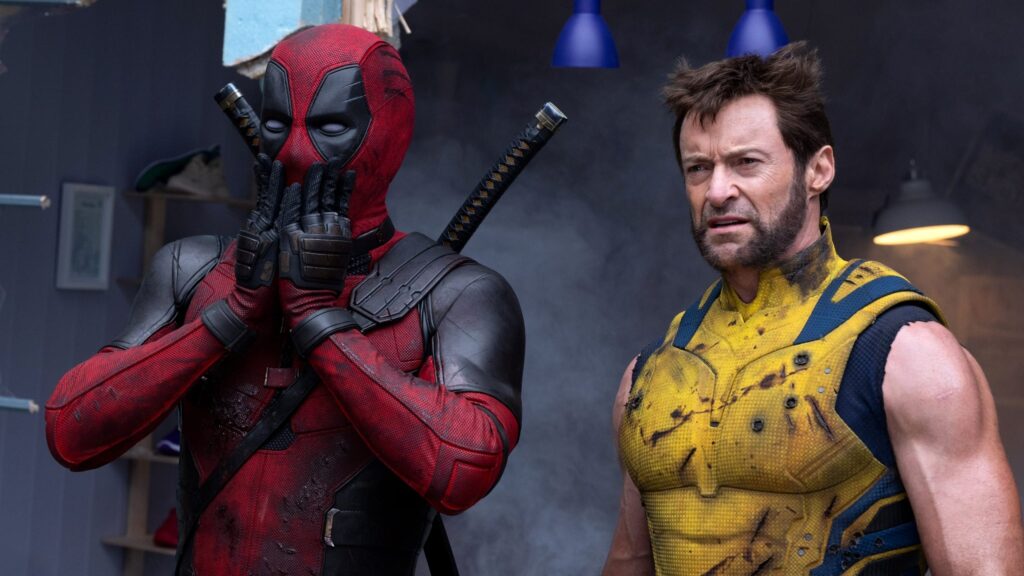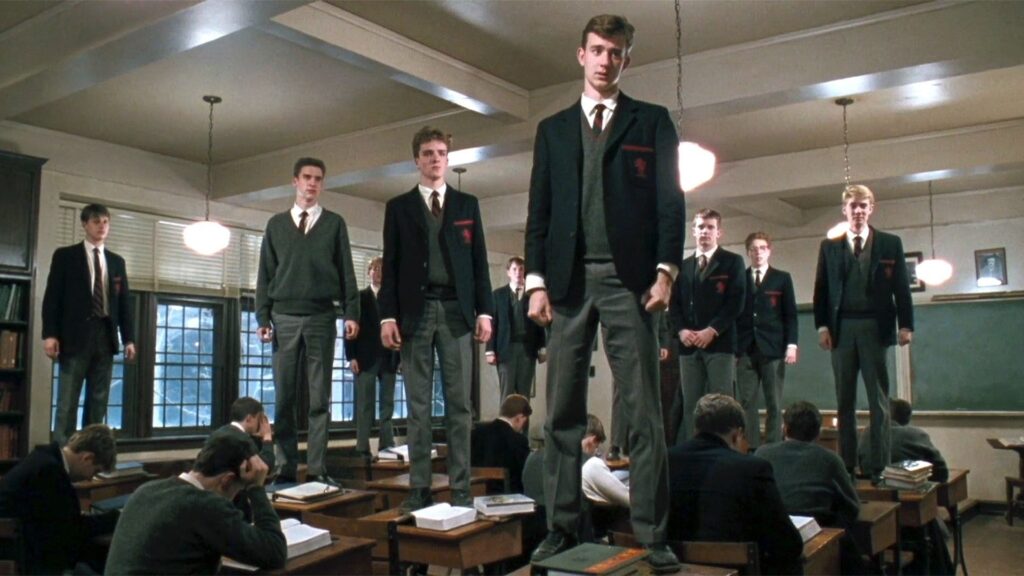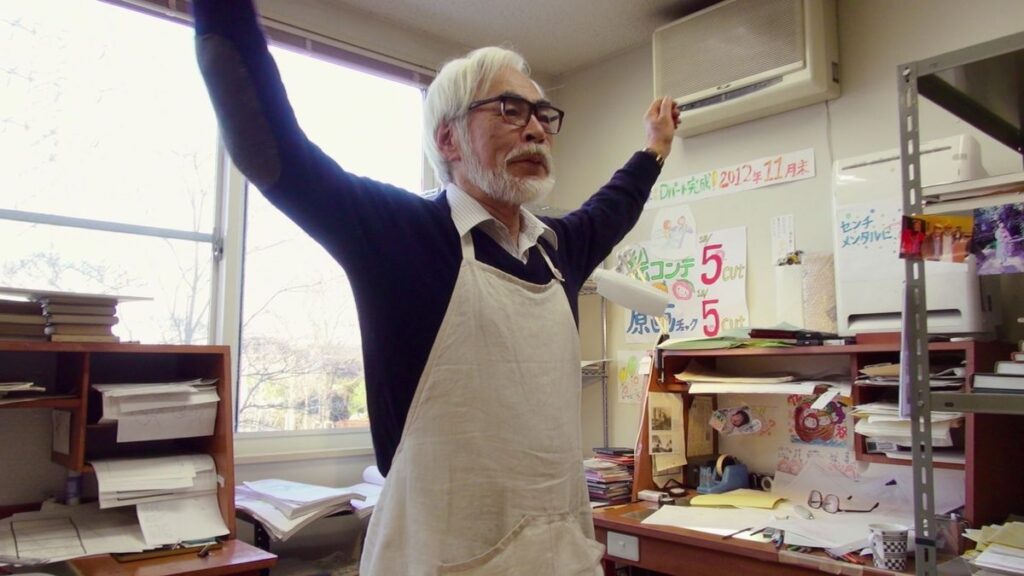As it turns out, disaster strikes when you hand young, unexperienced animators the most stressful job in the world.
It’s no secret that Ocean Waves, Studio Ghibli’s first outing without the direction or production of any of its co-founders, is a particularly weak effort from a company with such a solid track record. Featuring shallow characters, strange decisions in the presentation, and an air of cheapness in its animation, the film’s failures outweigh its successes, making for an experience that painfully wears down the viewer, and only serves to remind you of better movies you could be watching from this studio.
Our story is centered around the uninteresting Taku, and his high school experience pertaining to his best friend, Yutaka, and the love of his life(?), Rikako. You’d be hard-pressed to find reasons why there’s any romantic connection between them at all, seeing as the film can’t find one either. Throughout its runtime, the film most definitely shows us interactions between the two, but miraculously forgets to show any positive ones.
Every single conversation they have, at some point, contains a degree of manipulation from Rikako. In fact, Rikako’s manipulative nature (her precise ability to spin everything back on Taku) as well as her blatant selfishness and brattiness, is so present, it’s strange that it’s there at all. It’s by no means difficult to pick up on; the film goes so far as to make a deliberate effort of showing her hypocrisy, demonstrating her complain about a friend who never talks about anything but himself.
The only time when she chooses to engage in a two-sided conversation is when trying to get something out of Taku; the money at the beginning of the film. I’m all for unlikeable characters in media (and I’d absolutely encourage the portrayal of such a dichotomous love story; one in which one character’s love is undermined by an extreme layer of narcissism from the other) but not ones that are so one-dimensional and fail to have their behaviour acknowledged in the story. Especially not ones who are seen as the ‘dreamy love interest’ by the end of the film, as though this representation of women is a positive one and one to be expected.
The film actually features a very comical montage when Taku reminisces over his memories with Rikako; as the score swells and the camera pans back to see beautiful architecture, we hear the echoes of Rikako’s petty statements and subtly manipulative demands, to the point of her screaming about how much she hates our main character. Literally every memory of her that is heard is a negative one, yet Taku gives a satisfied nostalgic smile, as though he’s reflecting on entirely different experiences.
The narrative mundanely introduces new melodrama, before that is pushed away and replaced with another non-conflict. Our non-characters cycle through their petty issues, leading to nothing but irritation on the audience member’s side. It painfully grinds the most it can out of a situation, but once all potential has been scraped away, it frantically searches for another one to establish.
Any attempt to delve into potential themes goes unfulfilled; there appears to be some vague silhouette of Takahata’s perennial theme, that of course being the concept of an eternal struggle between identity and social adherence in Japanese society, yet nothing stems from this idea, no exploration nor any statement whatsoever. It’s really the whole film; no commitment to any of its own ideas, as though it lacks confidence in its own ability to portray them.
Slow, subdued direction is a style that has the potential to work to a film’s benefit; it can allow for a complicated exploration of character under the surface, concept in practice or theme through metaphor. This film does none of those things, with hollow characters whose surface is already broken when you look at the poster, a non-concept of the basic young love story, and themes that fail to have any kind of presence within the narrative. The slow direction does little more than irritate, stretching out the seconds longer than they should last. This 72-minute feature sincerely feels like it lasts two hours.
The animation’s mediocrity is well-justified given the low budget and is hardly noticeable in the presence of such a characterless narrative. What surprises me however, is the use of it. Camera angles seem to change constantly, with anywhere between 5 and 15 backgrounds drawn for any one location; not quite an efficient use of budget, now is it, animation team? Otherwise of course, it’s as cheap as Ghibli would ever get, before or after; a fast-moving bicycle appears to be animated on 3s, violent actions like Rikako or Taku slapping one another are awkward and slow-moving, and what should be a sprawling urban area is seen to be utterly isolated. And that emptiness definitely doesn’t represent anything; Taku’s most isolated moments should be at the train station, yet that’s when the backgrounds are most crowded.
Frankly, the story behind the film’s production is far more interesting than the film’s own narrative (and that isn’t saying much), essentially being an attempt for Ghibli’s younger staff members to create and oversee their own production. The intent behind the creation of the film was mainly financially motivated, as its purpose was to prove that Ghibli could create a feature cheaply and efficiently, with a self-supervising staff. This experiment of theirs did not pan out, however, as the project ended up over budget, over schedule and, worst of all, an uninspired film.
The director, Tomomi Mochizuki, was a fan of the novel the film is based on, and was considered to be the perfect fit for the adaptation, considering his experience with directing pre-Ghibli. With these pieces lined up, the only factor you could consider for why the film had the production troubles it did is some kind of lack of planning, perhaps due to the team’s youthful frivolity, not unlike the very characters in the film.
The romance genre is a hard one to pull off, as you need the audience to fall in love with your characters just as much as they are with each other. This film not only fails at that appealing characterization, but fails to have any aspects of filmmaking that are uniquely appealing at all.
Ocean Waves isn’t even a stain on Ghibli’s legacy, as much as it is not a part of it at all. Nothing about the film is outwardly embarrassing on the part of the filmmakers, just uninteresting. It is nothing more than a forgettable, unsentimental experience that neither achieves what it sets out to achieve, nor disastrously fails. It simply hangs in a limbo state of nothing, an unspecial movie that is just barely remembered because of its association with a beloved animation studio. The experience of watching this film will leave you with little but emptiness, and the sneaking regret that you should have put on Whisper of the Heart instead.
